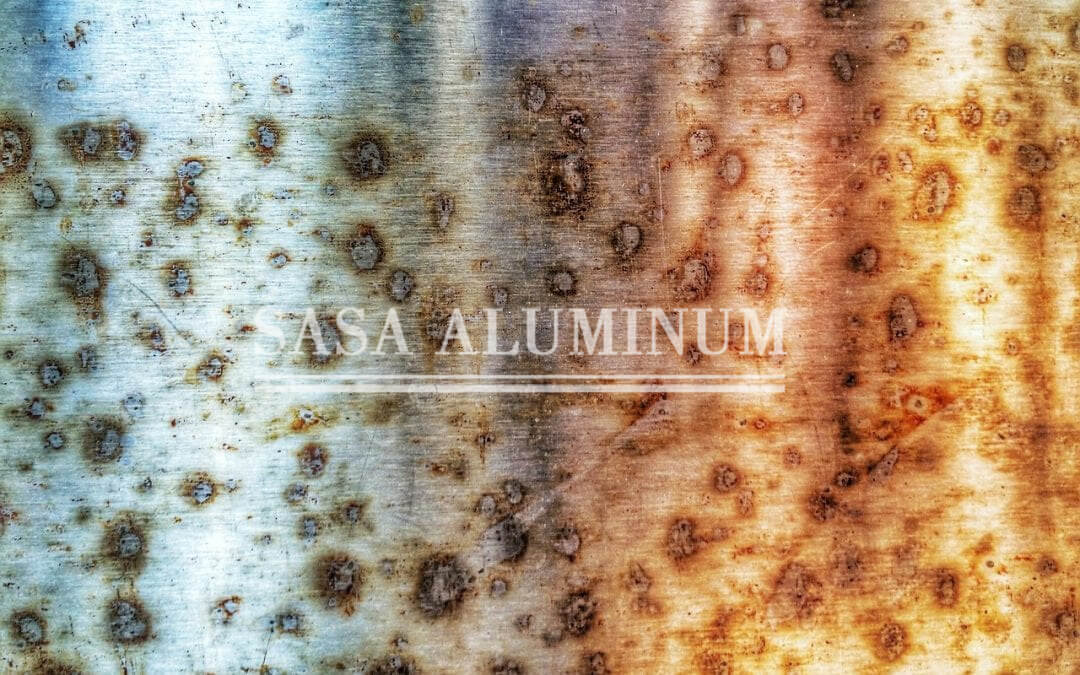
Aluminum is widely appreciated for its many advantages, such as being lightweight, strong, and highly machinable. However, despite these benefits, many users still question whether aluminum is susceptible to rusting—especially when compared to other commonly used metals like steel and iron.
This concern is understandable, as rust can not only tarnish the appearance of a metal but also compromise its structural integrity over time.
Can Aluminium Rust?
In simple terms: aluminum does not rust. However, it can corrode. So, what’s the difference between rust and corrosion? It’s an important distinction—although the two terms are often used interchangeably, they are not the same.
Corrosion is a general term that refers to the gradual degradation of metal due to chemical reactions—typically involving moisture, air, or other environmental elements. Rust, on the other hand, is a specific type of corrosion that occurs only with iron or steel. It happens when iron reacts with water and oxygen, forming iron oxide. This reddish-brown substance flakes off, continuously exposing fresh metal underneath, which then begins to rust again—eventually reducing the metal to a weakened, decayed state.
Aluminum, while susceptible to corrosion, does not undergo this flaking rust cycle, which is one reason it is favored in many structural and outdoor applications.
What Causes Corrosion?

Corrosion occurs when one material gradually deteriorates another—battery acid, for instance, is notorious for eating away nearly everything it contacts. In metalworking, however, corrosion is often associated with or considered a precursor to rust.
This type of metal degradation is typically tied to oxidation—a chemical process where metal atoms at the surface react with oxygen in the environment. With aluminum, this results in the formation of a microscopically thin but resilient layer of aluminum oxide. For iron or steel, the same reaction produces iron oxide, commonly known as rust.
Corrosion isn’t limited to just oxygen exposure. Aggressive substances like chlorides or sulfides can also chemically attack metal surfaces. Another form, known as galvanic corrosion, occurs when a conductive fluid—such as saltwater—creates an electrical bridge between two different metals. This causes electrons to transfer from one metal to the other, depending on their position in the galvanic series. The metal that loses electrons begins to degrade as a result.
Corrosion vs Rust
Rust is a specific type of corrosion that affects only iron and its alloys, such as steel. The process begins with oxidation, where iron reacts with oxygen and moisture. The resulting iron oxide occupies more space than the original metal, causing the surface to expand and flake off. As the protective layer breaks down, fresh iron is exposed, and the cycle continues.
Rust is easily identified by its reddish hue and the unsightly streaks it leaves, especially on painted or coated surfaces. But beyond aesthetics, rust is structurally destructive—it steadily consumes the underlying metal, eventually compromising its integrity. That’s why, when selecting steel for fabrication projects, corrosion protection strategies must be carefully considered.
Interestingly, stainless steel resists rusting because it contains at least 10.5% chromium. This chromium reacts with oxygen first, forming a passive layer of chromium oxide. Unlike rust, this film adheres tightly to the surface, shielding the metal beneath from further oxidation and ensuring long-term durability.
Conclusion
Aluminium does not rust because it contains no iron—the key element required for rust formation. Instead, when exposed to air or moisture, aluminium naturally forms a thin, durable layer of aluminium oxide. This layer adheres tightly to the surface and protects the underlying metal from further corrosion. Unlike rust, which flakes off and exposes more metal to damage, aluminium oxide remains stable and prevents deterioration. Thanks to this self-passivating property, aluminium remains a reliable, corrosion-resistant choice for industries ranging from aerospace to construction.
Post time: May-07-2025